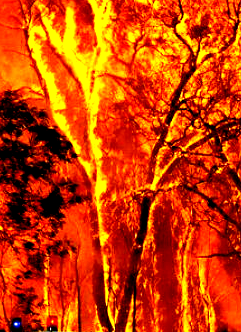Climate link laid out
 A new report draws a direct link between climate conditions in Australia and recent bushfires.
A new report draws a direct link between climate conditions in Australia and recent bushfires.
A new study by an international team of scientists at World Weather Attribution, which has not been peer-reviewed, claims human-induced climate change increased bushfire risk by 30 per cent due to a lack of rainfall and higher temperatures in 2019, compared with 30 years ago.
“We’re very sure that is a definite number we can scientifically defend,” lead researcher Jan van Oldenborgh wrote.
The study says that the early bushfire season was more powerful than traditional climate modelling predicted, and that Australian heatwaves are 1-2 degrees Celsius hotter and 10 times more likely to occur than in 1990.
“We can therefore only conclude that anthropogenic climate change has made a hot week like the one in December 2019 more likely by at least a factor of two,” the study wrote.
Climate Council senior researcher Tim Baxter says Australia could be one of the worst-hit by climate change.
“We know that at two degrees [of global average surface temperature rise], the Great Barrier Reef will more or less not be a thing anymore,” he told The New Daily this week.
“With two degrees, you’re talking about mass bleaching happening at the frequencies it’s unlikely to recover from. Even at 1.5 degrees, it’s getting difficult.
“We know that sea levels will rise. There’s some uncertainty about how much, but we know when they rise there’s a bigger storm surge, so it goes further and further up the beach, so more homes are impacted.
“What we can say with absolute certainty, is that with the recent drought, the fires, then floods, we’ve seen what climate change looks like, and we’re talking about one-degree warming now.”








 Print
Print